Students denounce ASU’s use of police, suspension against pro-Palestinian protesters
By Helen Rummel
On May 2, 2024
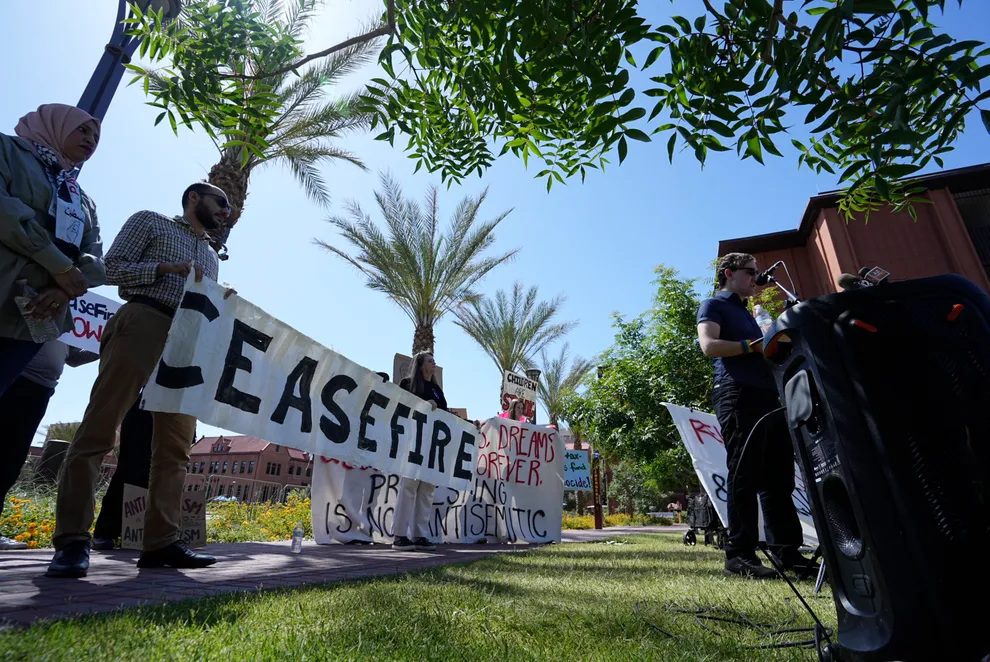
Megan Mendoza/The Republic
Students and campus leaders from last weekend’s pro-Palestinian protest are condemning Arizona State University’s response involving dozens of arrests and student suspensions.
Last Friday, a group of protesters erected an encampment, which was up for close to 16 hours and featured dancing, chants and shared meals. While there were disputes between protestors, police and counter-protesters, the demonstration was nonviolent. After growing to a crowd close to 200 people, multiple police agencies, including ASU police and the Arizona Department of Public Safety, forcefully disbanded the group and arrested about 70 people.
“Let me be unequivocal, this is unacceptable,” said ASU alumna Tarteel Alimam in a Thursday press conference hosted by more than a dozen student and community groups. She joined several campus leaders calling upon the university to remove the penalties weighed against students and protect their right to protest.
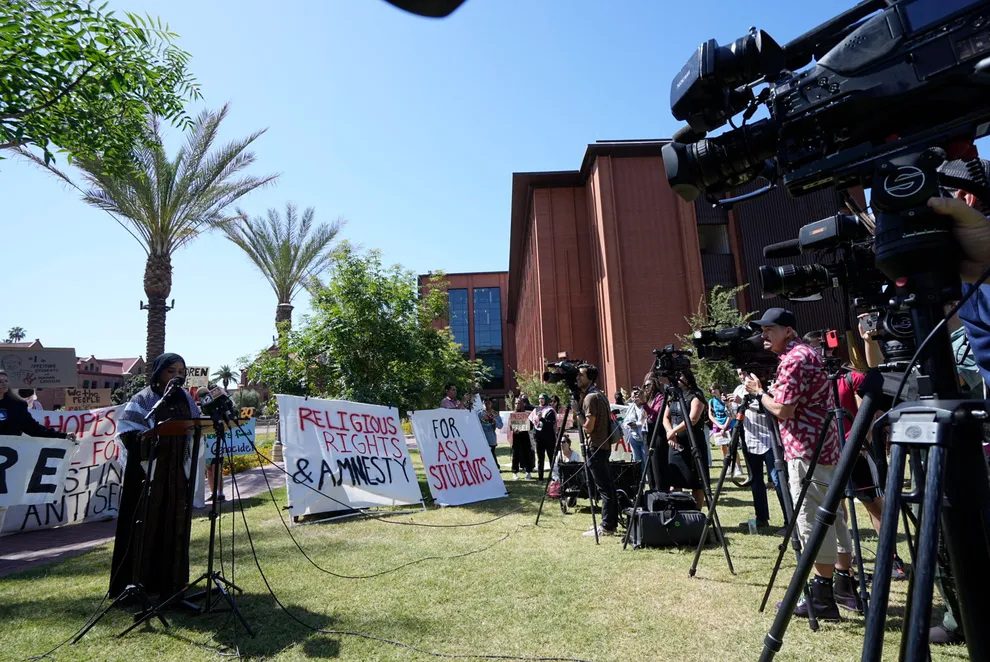
Megan Mendoza/The Republic
How many ASU students were arrested?
“We must create an environment where all voices are heard, respected and valued regardless of their viewpoint or backgrounds,” Alimam said, who was at Friday’s protest and witnessed the arrests.
While ASU officials originally said only 15 students were of those arrested, organizers say that is incorrect. They count at least 25 students and even more staff arrested in the protest. University officials have not responded to questions about their count.
Those arrested were not able to join their peers in a press conference on Thursday, after being banned in an interim suspension. It’s unclear if some of those students will be able to graduate after receiving letters from ASU officials accusing them of breaking the student code of conduct.
The university faces a lawsuit on behalf of 20 students saying the suspensions infringe on their First Amendment rights.
None of the protesters have officially been charged after ASU Police Department missed an initial 48-hour deadline to refer the cases to the Maricopa County Attorney’s Office. Those charges can still be made, but the original release conditions have expired because of the missed deadline. ASU officials did not respond to questions on if and when that information will get to county attorneys.
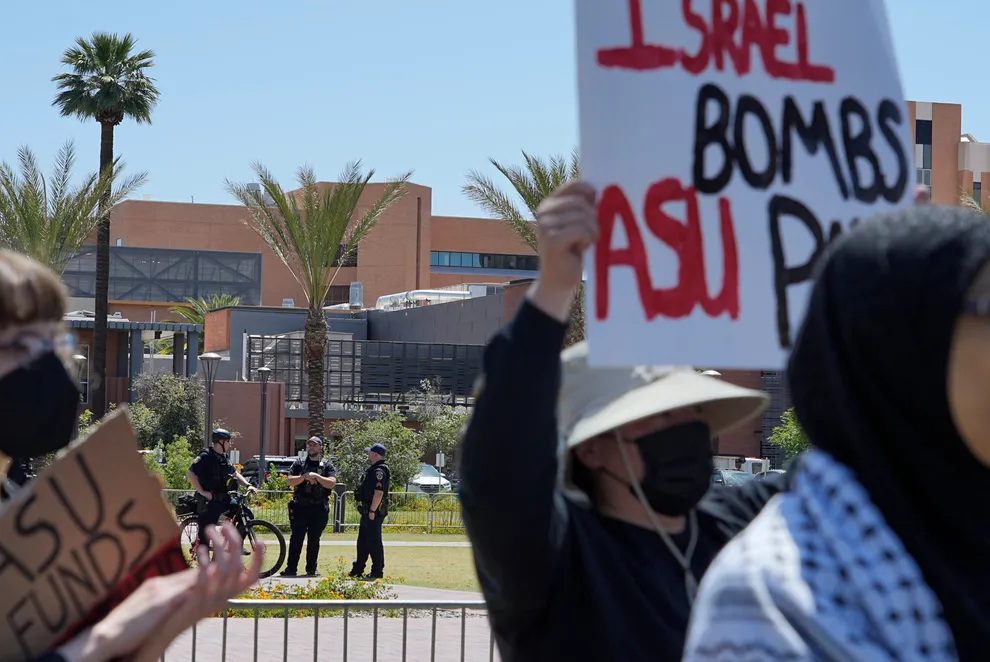
Megan Mendoza/The Republic
‘What is the role of education if not liberation?’
Crystal Jackson, a Jewish ASU faculty member, said she teaches much of the content protesters are focused on and supported the students’ calls for a ceasefire in Gaza. She said the university’s recent actions show a breach of its charter, which says the school is “measured not by whom it excludes, but by whom it includes.”
“ASU has failed at upholding its fundamental responsibility,” Jackson said.
Jackson said this week’s protest comes after decades of student activism and should be allowed to continue at ASU. She said she wants to see a public apology from ASU leadership.
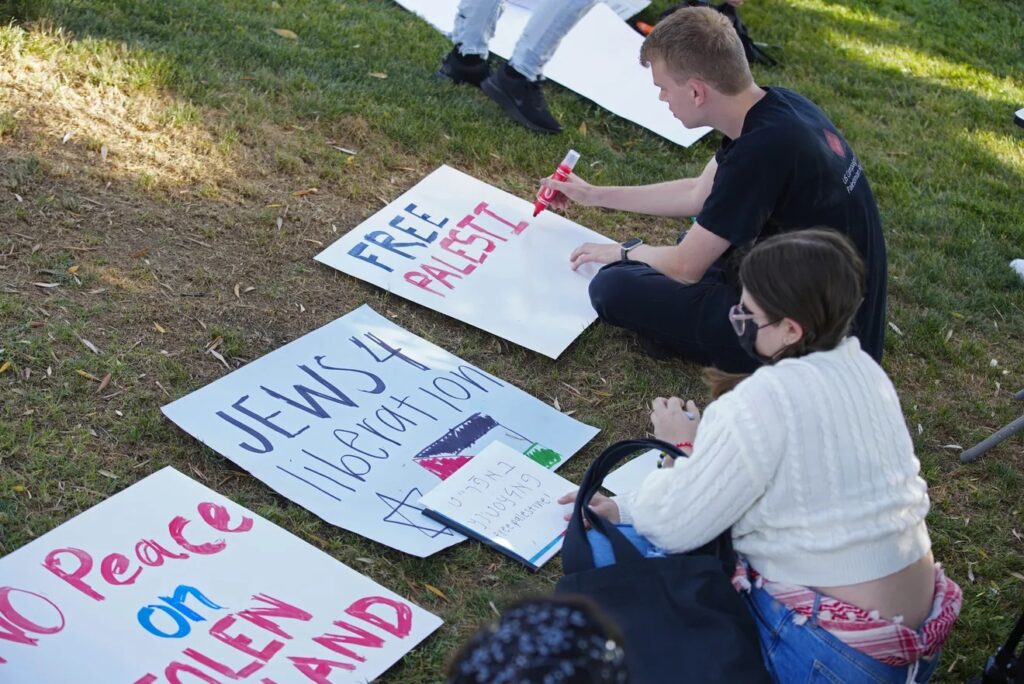
“What is the role of education if not liberation?” Jackson said.
Behind the group were several officers who continued to patrol Alumni Lawn nearly a week after the demonstration. The lawn remains barricaded.
A letter signed by more than a dozen Democratic legislators is calling on university presidents and the Arizona Board of Regents to reconsider the suspensions of students, saying it’s their responsibility to protect students’ freedom of expression.
The letter referenced the multiple committees created to protect the freedom of speech of all Arizona students, regardless of political affiliation. They described the arrests and use of force from police as “disturbing” and “alarming.”
“While state law may require ASU to pay for the security of individuals attending these speaking events, speech we wholeheartedly agree is covered by the First Amendment, that obligation should also be extended to individuals who peacefully protest on the campus they pay to attend,” the letter reads.
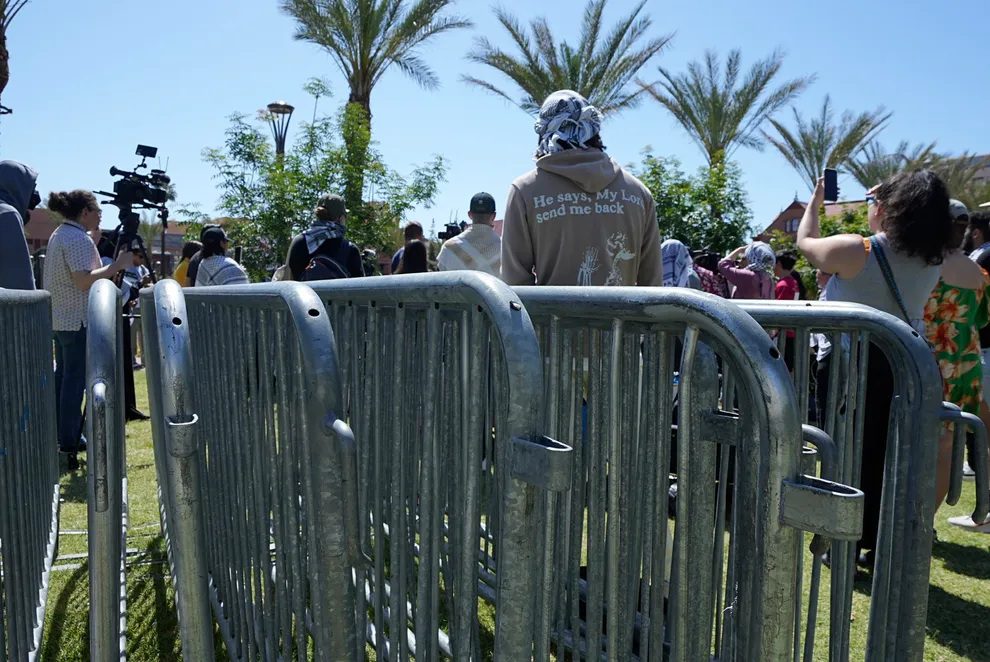
Megan Mendoza/The Republic
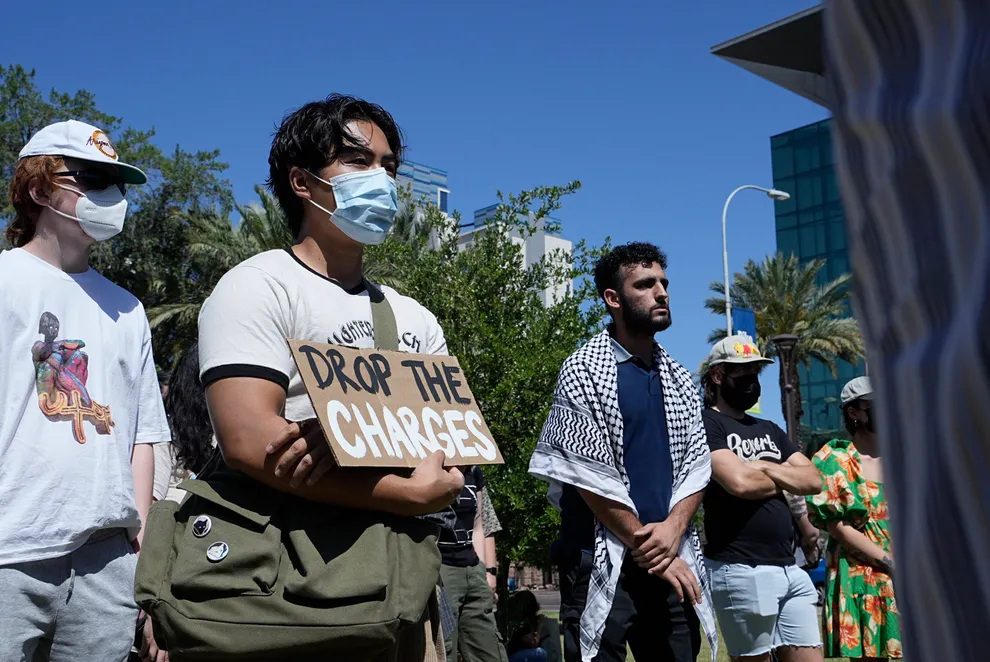
Megan Mendoza/The Republic
This piece was republished from AZCentral.